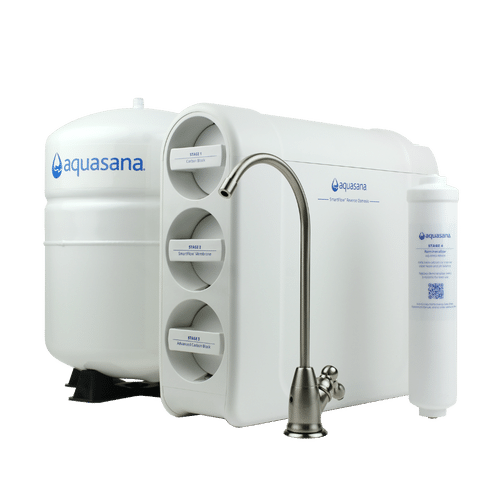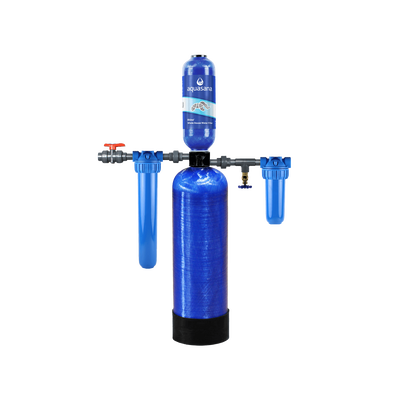
What is the best water for indoor plants
There are many types of water out there, so it’s important to know the difference between them so you can make an informed decision about the best type of water to use on your plants. Among the options, the most popular and commonly discussed are distilled and filtered water for plants. To help you decide, we’ve provided a breakdown of each.
Distilled water for plants
Distilled water is a type of purified water that has gone through a rigorous process of boiling and then condensing the vapor. While the distillation process helps remove contaminants that can be harmful to plants, it also removes minerals that are good for plants.
Over time, using distilled water for plants can result in stunted growth and discoloration because they aren’t getting the nutrients they need. To compensate for the lack of nutrients in distilled water, some people suggest adding powdered or liquid nutrient supplements to the soil or water you use for plants. Overall, distilled water can be good for plants because it helps remove contaminants, but the lack of nutrients means you may need to use a supplement or consider another type of water.
Filtered water for plants
Filtered water, on the other hand, is tap water that has been treated by going through a filtration process that removes contaminants such as chlorine, chloramine, lead, and other bacteria. There are several types of water filters that use different processes, technology, and media, including activated carbon, ion exchange, mechanical, ultraviolet, and reverse osmosis.
Here are the most common methods of water filtration, and whether or not they are beneficial for house plants:
Ultraviolet water filter for plants
Not all water filters do the same thing. For example, ultraviolet filters are great at removing viruses but won’t help with removing contaminants like fluoride that can harm plants. As such, it’s important to do research before buying a water filter to make sure it actually removes contaminants present in your water that are harmful to plants. When doing so, look beyond product reviews and check that the filter you’re looking at has been certified by an independent testing agency like NSF, WQA, or IAPMO.

Mechanical water filter for plants
The same thing goes for mechanical water filters. They’re good at removing physical particles but don’t remove harmful chemicals found in tap water that harm your plants. This type of filter is commonly used in fish tanks.
Ion exchange water filter for plants
Ion exchange water filters help remove radioactive material, and ion exchange water softeners soften hard water by replacing calcium and magnesium ions with sodium ions. However, watering your plants with softened water could do more harm than good. Sodium in water prevents water absorption and disrupts chemical reactions needed for food production. Over time, the salt can build up in the soil and cause issues. In general, you’ll want to consider activated carbon or reverse osmosis filters to provide the best water for your plants.
Reverse osmosis water filter for plants
Out of these options, reverse osmosis is the most effective method for removing the largest number of contaminants. However, much like distilled water, the reverse osmosis process can sometimes remove healthy nutrients, which is why you should look for an RO system that contains remineralization technology like the Aquasana SmartFlow® Reverse Osmosis Filter. This system uses four methods of filtration to remove 5x more contaminants than other RO systems and utilizes remineralization technology to add healthy minerals after the reverse osmosis process. Furthermore, this filter is also tested and certified to NSF/ANSI Standards 42, 53 (includes P473), 58, 401, and CSA B483.1 to reduce 90 contaminants, including chemicals that can harm plants like fluoride, chlorine, chloramines, pesticides, herbicides, and VOCs.
UNDER SINK WATER FILTER
SmartFlow® Reverse Osmosis
High-efficiency reverse osmosis system removes up to 99.99% of 90 contaminants, including fluoride, arsenic, chlorine, and lead.

Activated carbon water filter for plants
As an alternative to reverse osmosis, activated carbon filters are also great for plants. Activated carbon water filters use a material like wood or coconut shell that is heated to produce a charred substance. The char is then treated to make it highly porous, so when water passes through it contaminants stick to the material through a process known as adsorption. We offer several types of activated carbon filters including under sink, countertop, and whole house systems that are all great for providing healthy water for plants. If you have plants throughout the house, we recommend a whole house system because it enables you to have filtered water out of every tap in your home.
Filtered water vs. distilled water for plants
In a nutshell, the difference between distilled water and filtered water is that distillation strips away all the natural minerals found in water as well as chemicals like fluoride and chlorine. Specific water filters, on the other hand, remove harmful contaminants while retaining the natural minerals you and your plants need. So make sure to choose a water filter that is certified to remove contaminants but won’t strip away beneficial minerals in the process.
How to know which water filter is best for your plants
Some plants are more susceptible to contaminants found in tap water. Foliage plants, in particular, are most often affected so if your plant shows signs of fluoride or chlorine toxicity, switch to filtered water instead. One way to find out what’s in your tap water is to do a quick online search to see if there are any harmful chemicals your plants are sensitive to and cross-reference that with a list of the chemicals found in your city’s tap water. One way to do this is by entering your zip code in EWG’s Tap Water Database who’s been documenting water quality since 2012 and has over 32 million state water records. Knowing what’s in your water can help you determine what kind of water filter you need based on the contaminants you’re looking to remove.
Bottom line: Filtered water works best for your plants
If you’ve installed a water filtration system in your home, you probably want nothing but the best for yourself and your whole family, so why not include your plants? While using water straight from the tap might seem good enough for your plants, by now we know it’s highly advisable to put your water through a filtration system before watering your plants.
Filtered water is not only good for you, but it’s great for your plants too. If you’re new to water filters, you could start with an activated carbon filter first since there are lots of options to choose from. Aquasana offers a wide range of water filters that are great for plants including under sink filters, countertop filters, and whole house systems. All of these do a great job of removing harmful chemicals in the water, chlorine included. Once again, it is a matter of striking a balance between convenience and cost. If you’re not sure which water filter you should choose to provide the best water for plants, contact us for information and help.



